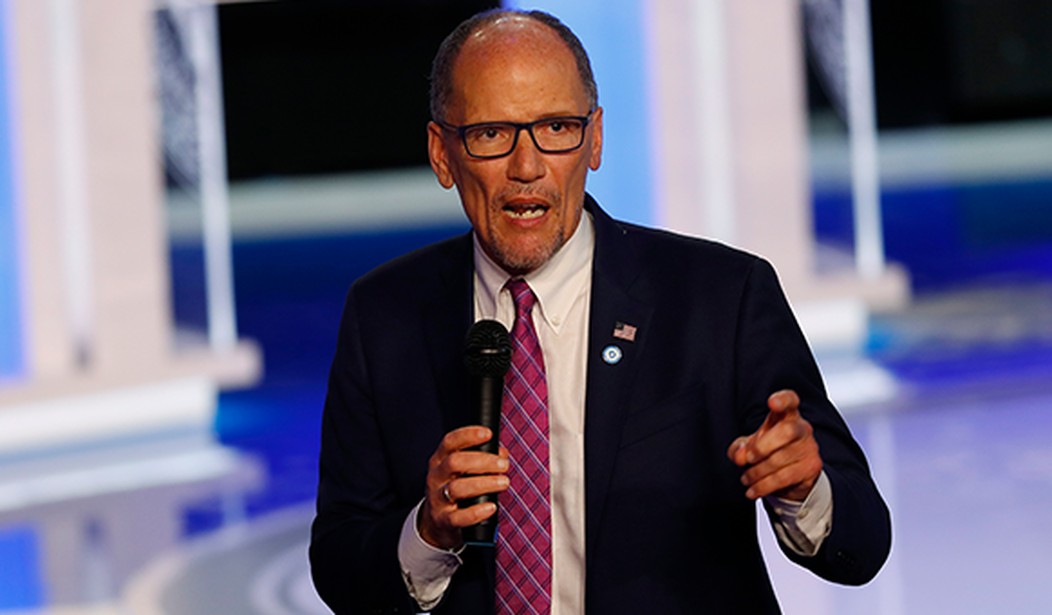PITTSBURGH -- There is a battle going on here within the Allegheny County Democratic Committee, a formidable force of centrist, conservative and liberal Democrats whose backgrounds range from union halls in the city to the businessmen and women who have spread out into the leafy suburbs that hug the city limits.
A key figure in the battle is committeewoman Heather Kass, who is running for the state House. Several years ago, Kass's posted on social media criticism of Obamacare and the distribution of free narcan for addicts -- and insinuated support for President Donald Trump.
Fortunately for Kass, she received 49 votes from the committee to secure its endorsement. Her opponent, liberal activist Jess Benham, received just 19.
That's when things got interesting. Darrin Kelly, an influential local labor leader, issued a statement blasting Kass's previous statements. The party hierarchy followed that up by saying her social media history was disqualifying.
The fight soon unraveled in many different directions and tested a party that has comfortably come together and built a force that helped keep a Democrat as the chief executive officer for five consecutive terms and keep a majority of the county council seats.
Now accusations of disloyalty and closet Trumpism are being tossed around by the liberal wing of the party. The factions that once worked together well enough to enjoy a healthy coalition are splintering.
Party Chairwoman Eileen Kelly held a press conference defending the endorsement process and encouraging forgiveness of Kass's past social media posts. But in response, local elected Democrats including two of the county's congressmen, Rep. Mike Doyle and Rep. Conor Lamb, demanded her resignation.
Recommended
Two things are worth watching: The chairwoman is probably going nowhere, and the April 28 Democratic primaries in Pennsylvania are going to be a spectacle. This county isn't the only one in the commonwealth with fractures within the party. Roughly 250 miles due east along the Lincoln Highway, Lancaster County is experiencing some serious turmoil within its party ranks.
Unlike Allegheny, Lancaster is considered a red county. Yet despite giving Trump a majority of its votes in 2016, Democrats (under then-Chairwoman JoAnn Hertz) fought and flipped traditionally Republican-held suburbs in the 2017 and 2019 local elections.
As thanks, Hertz was given the choice of either facing public criticisms from within the party ranks or resigning.
Forced out, Hertz was replaced in a committee election by Diane Topakian, a retired Service Employees International Union political organizer who is from the most liberal side of the party.
Places such as Allegheny and Lancaster counties have made strides in elections with Democratic candidates who ran and won as centrists. Once they are elected, however, local party apparatuses start to demand more fidelity to liberalism, and the national party stresses it in messaging. But these are the kinds of places where any gains that were made since Trump was elected may start to fall apart.
The ideological balance in this country remains firmly center-right. Yearlong 2019 Gallup poll numbers based on combined data from 21 of its telephone surveys show 37% of the country, on average, identifies as conservative, 35% as moderate and 24% as liberal.
It also found that Republicans tend to be less fractured. They have their differences, but in the end, they conform around conservatism.
Democrats are more fractured. Survey results strikingly reflected what happened in Allegheny and Lancaster counties. As Gallup said, "Even though liberalism has been on the rise among Democrats, it is not yet the clear majority position, perhaps leading to the strong intraparty clashes." This has been seen at the local level in Allegheny and Lancaster counties, as well as the national level, in Democratic Party presidential debates.
A Democratic presidential candidate is not going to win or lose based on how fractured his or her party is. It will depend on how well he or she can coalesce the party and motivate people to show up.
What is happening in Allegheny and Lancaster counties, and countless other counties across the country, shouldn't surprise anyone. It has been reflected in every single Democratic debate of this presidential cycle.
This didn't start yesterday, last week or in reaction to Trump or Hillary Clinton. This party has been trying to shed its centrist members since the presidential campaign of Al Gore, and it tipped the scales with former President Barack Obama -- who waited until his second term to dismantle the so-called New Deal coalition in favor of the ascendant coalition of young people, minorities, women and just enough white working-class voters.
Clinton failed to include the working class in her coalition and lost. If these smaller county parties mimic that in 2020, and if the Democratic National Committee and its presidential nominee follow suit, Democrats will struggle locally and nationally. The result will be fewer locally elected Democrats, a slim-to-none congressional majority and four more years of Trump.
Salena Zito is a CNN political analyst, and a staff reporter and columnist for the Washington Examiner. She reaches the Everyman and Everywoman through shoe-leather journalism, traveling from Main Street to the beltway and all places in between. To find out more about Salena and read her past columns, please visit the Creators Syndicate webpage at www.creators.com.

























Join the conversation as a VIP Member